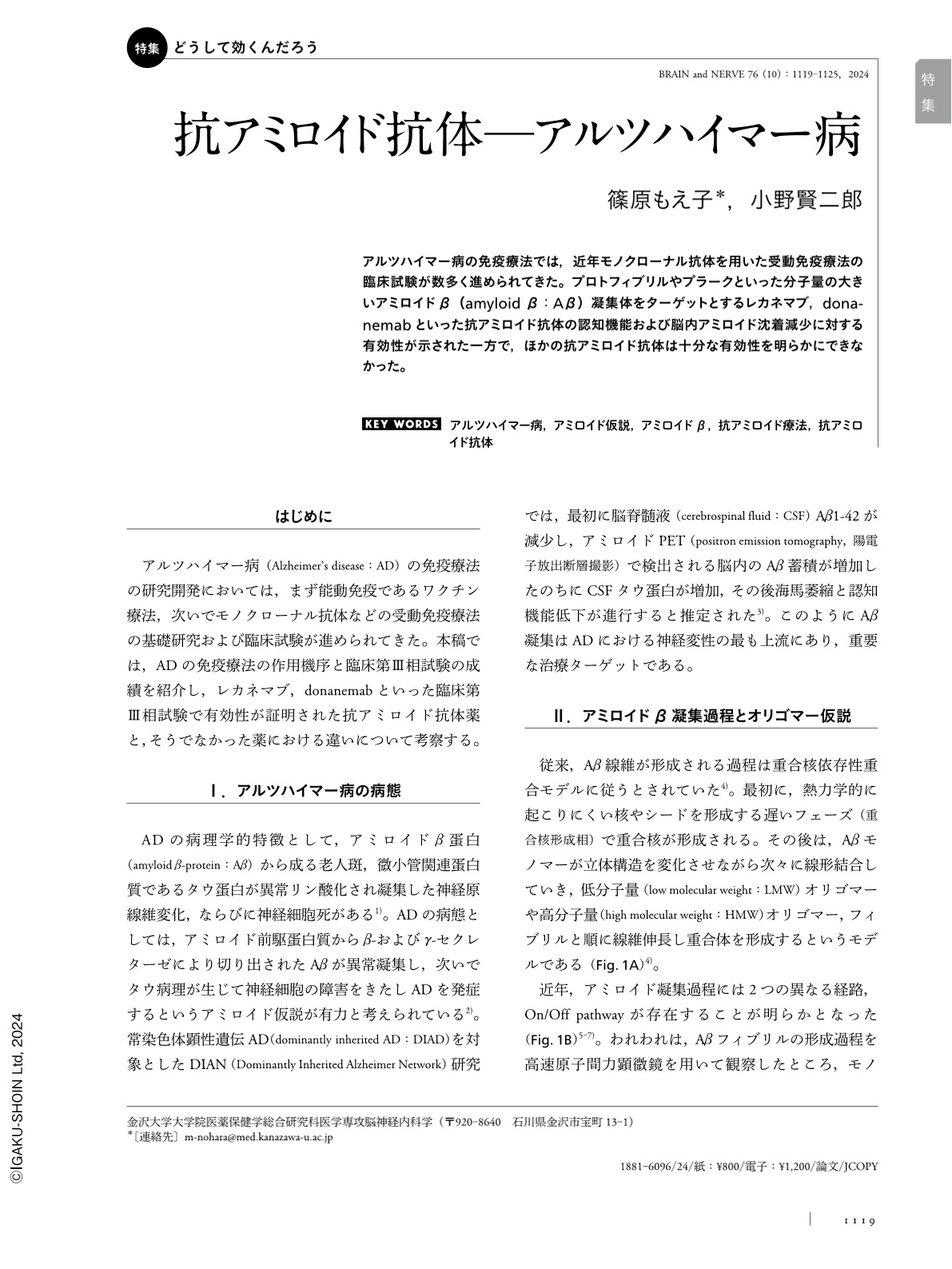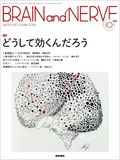Japanese
English
- 有料閲覧
- Abstract 文献概要
- 1ページ目 Look Inside
- 参考文献 Reference
アルツハイマー病の免疫療法では,近年モノクローナル抗体を用いた受動免疫療法の臨床試験が数多く進められてきた。プロトフィブリルやプラークといった分子量の大きいアミロイドβ(amyloid β:Aβ)凝集体をターゲットとするレカネマブ,donanemabといった抗アミロイド抗体の認知機能および脳内アミロイド沈着減少に対する有効性が示された一方で,ほかの抗アミロイド抗体は十分な有効性を明らかにできなかった。
Abstract
Alzheimer's disease (AD) is pathologically characterized by deposition of amyloid plaques (comprising amyloid β [Aβ] protein) and neurofibrillary tangles (comprising tau protein), and neuronal death. Aβ monomers aggregate to form oligomers, protofibrils, and mature fibrils. Previously, the mature fibrils and plaques were implicated as contributors to neurotoxicity and neurodegeneration. However, a growing body of evidence proves stronger toxicity of oligomers and protofibrils. Among the many recent phase 3 clinical trials that have investigated the role of anti-Aβ antibodies in AD, some have shown the clinical efficacy of aducanumab, lecanemab, and donanemab in these patients. Lecanemab showed selectivity towards protofibrils over fibrils, and donanemab was specifically directed against Aβ only in brain-specific amyloid plaques. In contrast, other anti-Aβ antibodies did not show efficacy in AD.

Copyright © 2024, Igaku-Shoin Ltd. All rights reserved.


